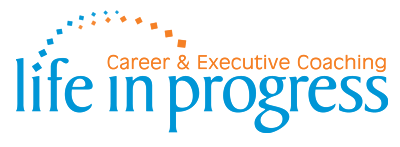
by Deanna Parkton and Ed Hunter
Love it or not-so-much, we all engage in small talk. Depending on the people and your own disposition, small talk may be a welcomed opportunity to have a pleasant exchange and build rapport, or a dreaded and purely superficial mechanical exercise.
So why should I care?
A couple of reasons: Because ‘small talk’ is where we build trust, liking and comfort in working together, all of which are critical to effective working relationships.
Small talk at work is an important component of workplace relationships, even if the relationship is not a deeply personal one. It might be the chatter at the beginning of a meeting, a quick exchange in the hallway, or even a short conversation in a general area like the lobby, water cooler or kitchen.
There may be times that the last thing we want to do is engage in small talk. Maybe we have other things on our mind related to our personal life, or we might have a long, looming to-do list waiting for us. The truth is that small talk at work is a way to build relationships, including trust and “liking”, which we know leads to positive career outcomes. Check out our article about How To Create Positive Visibility in Your Organization for more ideas about the relationship between relationships and forward career momentum.
A Forbes article about Why Small Talk Is Anything But Small also discusses the benefits of small talk. Some of which include:
- Enables us to find common ground and shared interests
- Improves our active listening skills
- Helps us to overcome social discomfort
- Allows the conversation to transition into more serious, deeper topics that require trust and safety
Sometimes starting the “small talk conversation” can be the toughest part. Of course, the weather is always a good starting point. If you work remotely, asking your colleague how the weather is by them is always a nice way to show interest in their local area. While “talking about the weather” may seem a lame starting point, it is also an easy and safe way to segway out of shop talk and into a friendly chat.
Asking about one’s weekend or how their week is going is another way to get a conversation flowing. If you feel like your relationship with your colleague is a trusting and friendly one, do not be afraid to share something personal with them. It may open the door for them to feel comfortable sharing something personal with you. This does not have to be especially deep, but simply opening up about something going on in your life allows others to be vulnerable. This can build a stronger connection that can often benefit your working relationship.
With more people working remotely, there might be less opportunity for small talk in a common work space, but utilizing a few minutes at the start of a virtual meeting is a great time for small talk. If you are leading the meeting, taking a few minute pause before diving into the topic can be a welcome “human to human” interaction. Something as simple as saying “before we dive in, let’s have a quick little check-in can change the entire vibe of the group. Try:
- “How is everyone’s week going?”
- “How is the weather by you?”
- “How was your weekend / do you have any plans for the weekend?”
- “Does anyone have any good podcast or tv show recommendations?”
Small talk is an underrated but important foundational tool in building connections and relationships with colleagues. For more ideas on building connections with others, check out our blog Community and Connection in the Workplace: Why It Matters and How To Build It.
For some more ideas on conversation starters, check out the links below.
For more ideas on how you can reflect on your work life and identify growth opportunities, consider working with a career coach. A coach can help you identify strategies to face workplace challenges head on. Check out our executive coaching services and sign up for a free consultation here.
Deanna Parkton is a writer, career coach and educator with a passion for professional development and work wellness and happiness. With a focus on self-reflection, she works with individuals in their quest to reach their career goals as well as satisfaction in work-life balance. You can find more of her writing at workinglivingwell.com and she can be reached at workinglivingwell@gmail.com.
Ed Hunter is a Professional Career and Executive Coach and principal of Life in Progress Coaching. He is certified by the international Coaching Federation as a Professional Certified Coach.. He is also a Certified Executive and Leadership Development Coach. Ed has coached over a thousand professionals to create authentic careers and balanced work lives, and has a special interest in career development for adults with Autism. To connect with Ed, schedule a free consultation here.
